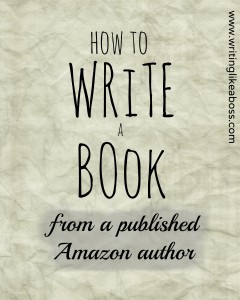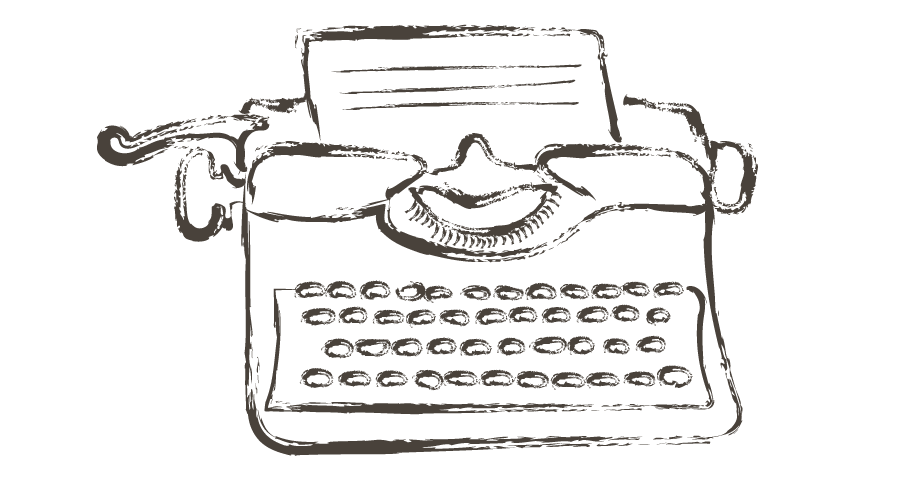“You can make anything by writing.”
– C.S. Lewis
 Writing a book is hard. It’s the honest truth for any and all writers – writing is hard. It takes weeks, maybe even months to write those 50 pages that the reader will finish in one sitting. Is the effort worth it? Oh, absolutely.
Writing a book is hard. It’s the honest truth for any and all writers – writing is hard. It takes weeks, maybe even months to write those 50 pages that the reader will finish in one sitting. Is the effort worth it? Oh, absolutely.
(This is a rough estimate.) I’ve written probably a hundred short stories, at least two novellas, and one full-length novel in my five(ish) years as a writer. However, I think my unfinished manuscripts outnumber them all – books that had great potential, untouched for years. After some hard thinking, I finally figured out why those stories failed, and why The Undiscovered Tribe succeeded.
This is one of my longer posts (I’m really, really sorry about that), but it’s worth reading through to the end. Aside from plot details and characters, I’ve written down pretty much everything I can think of to keep handy if you’re thinking of writing a book.
— PLANNING
Yes, planning is absolutely essential. Every single book I have attempted to write that I didn’t plan beforehand, well, let’s just say I can’t even remember their titles. Don’t skip this step!
- Word Count Goal
Oh, how NaNoWriMo of me to put this here. If you don’t know what a word count goal is, it’s pretty self-explanatory – you choose a certain number of words for your book, and do everything you can to reach that number. (To get a visual of exactly how many words you’d want, remember that Suzanne Collins’ The Hunger Games is almost 100,000 words, while The Undiscovered Tribe is 20,000.)
Here is a chart to help you out.– SHORT STORY: 1,500 – 10,000 words.
— NOVELETTE: 10,000 – 20,000 words.
— NOVELLA: 20,000 – 40,000 words.
— NOVEL: 40,000+ words.* Go outside your comfort zone on a word count. Seriously, it will be one of the best decisions you’ll ever make. - Keep a Document
Let me elaborate on this. Keep a document – an MS Word or Note doc., or even a notebook – of everything. List any and all ideas for your book, even the stupid this-could-never-happen ideas. Also keep a list of your characters on this file, and your plot, and pretty much anything about your book. I did this for all three TUT books (the second two are in the draft process), and they’re my most successful stories. - Brainstorm
This is an overused phrase, but gosh it is important. Staring at your blank document isn’t going to help you come up with ideas – if anything, it’ll just create frustration and an urge to quit. I, personally, get my best ideas by listening to music. I try to relate the song to any of my characters, and usually ideas are formed. How do you, personally, brainstorm? Comment and I’ll add you to this list. - Genre
Pick a genre during the planning stage. (Mystery, fantasy, and dystopian are some of my favorites, to get you started.) Also, along those same lines, you need to choose an age range to gear your book toward. This is the hardest part of planning for me, though I’m not sure why. It helps to imagine you’re writing for a specific person, like a friend or relative, because you know what kind of thing they’d like to read.
— WRITING
When you first begin writing your first draft, you’ll probably think something along the lines of, “finally, this is the moment I’ve been waiting for!” Or maybe that’s just me. I dunno.
- Hook your Readers
The #1 reason I put books down and let them collect dust is that I grow uninterested. This happens usually within the first three chapters for me, but there are some books that I got bored with halfway through, because nothing was happening. Here are some ways to grab your reader by the collar and yank them into the story.– Rock your first chapter. I think the main things that ruin the beginning of a book are: A) Introducing too many characters at once. B) Not explaining enough, and thus the reader is confused. C) Explaining too much, and thus the reader is overwhelmed. Some readers like it when a book starts in the middle of the action, while others like a few chapters to fully grasp the concept and characters before anything major happens. Maybe get some opinions from people of the age range you’re gearing the story toward.
— Leave a sense of mystery throughout the book. Divergent and The Maze Runner are prime examples. Done right, the readers will be dying to know what’s really going on.
— Dialogue. For the longest time I believed dialogue was boring and uninteresting, until I looked at it from the reader’s POV for the first time. If your dialogue is interesting enough, it will keep your readers interested in what the characters have to say.
— Plot twists! (More on that below.) - *Dun dun dun*
Plot twist! Dun dun dun!
Whenever you can, ask yourself, what does the reader expect to happen next? and then do the opposite. It’s the simplest, but probably most overlooked idea in plot twists. It helps to end each chapter with an idea – a cliffhanger, a sense of suspense, anything else that makes you keep reading to the next chapter. - Relax
Your first draft is supposed to suck, so don’t be discouraged if it does. You don’t have to worry about the quality of your writing until the editing phase, so you can relax and just enjoy the ride for now
— EDITING
Congrats, you’ve finished writing your first draft! Unfortunately, now it’s time for the real stuff. I know. I hate it, too.
How to Edit your Novel
- Read it Over
Read through your book at least twice on your own. Now is when you need to make major plot changes. - Trust Someone Else
It’s time to trust someone else with your book. If you already have a publisher, submit your manuscript to their editors. But if you’re still looking for someone to put your book on the market, ask a trustworthy relative or friend with good grammar to go through it for you. - Read the Post linked Above
— BONUS
- Titling your Book
When choosing a title for your book, ask yourself, would I pick up this book in a bookstore if it had this title? - Epilogues and Prologues
I, personally, like to keep my prologues ominous, and my epilogues brief with little to no dialogue. Some people don’t like prologues and epilogues, and most people won’t read them at all, so it’s kind of hard to decide whether or not you’d like one. Try adding them once you finish the first draft, then decide whether or not the story flows well with it.
Congratulations, you have successfully written a book!
